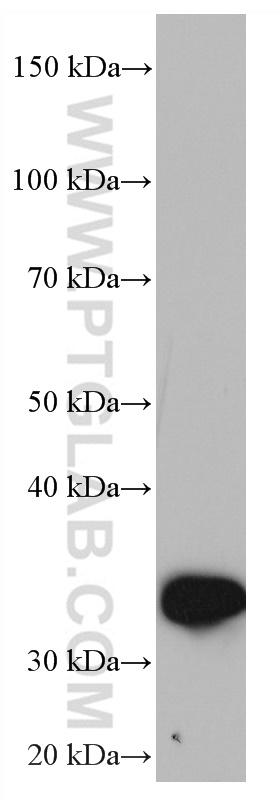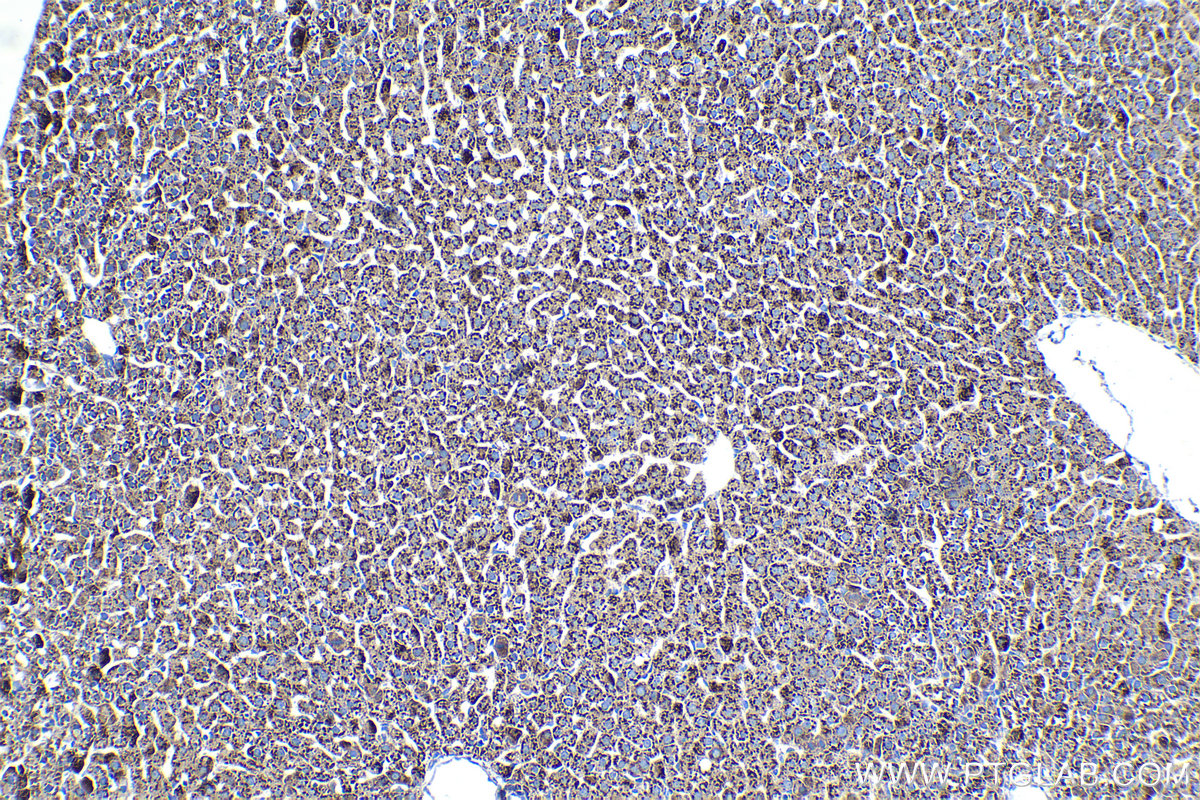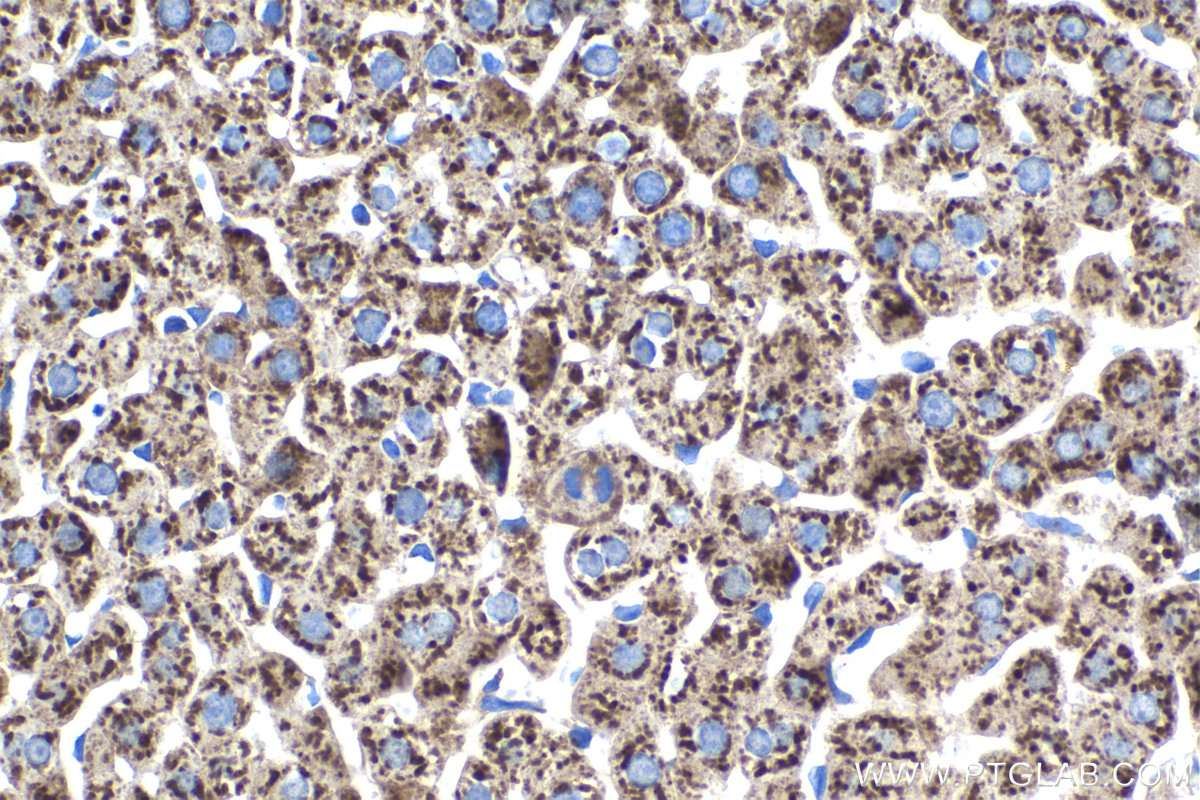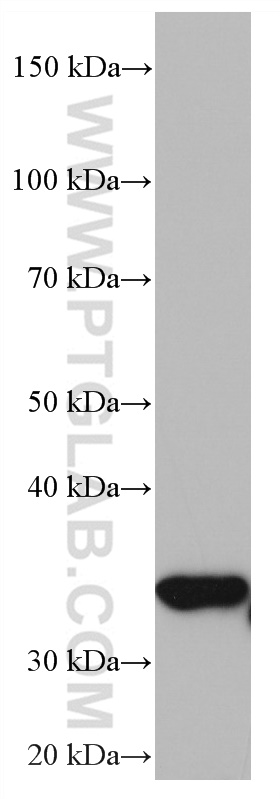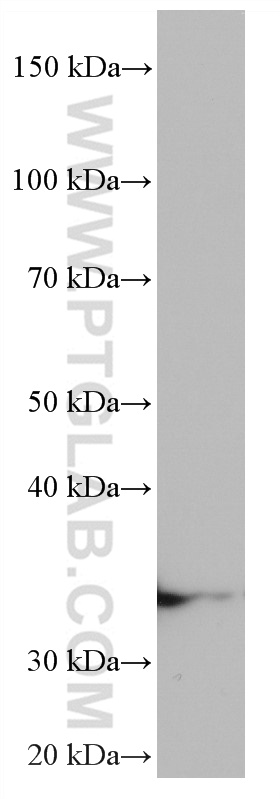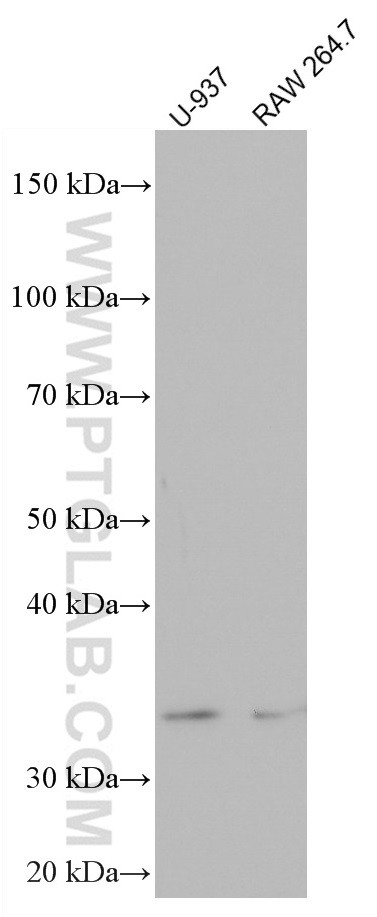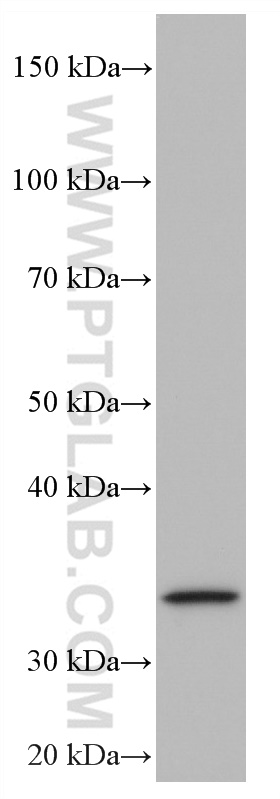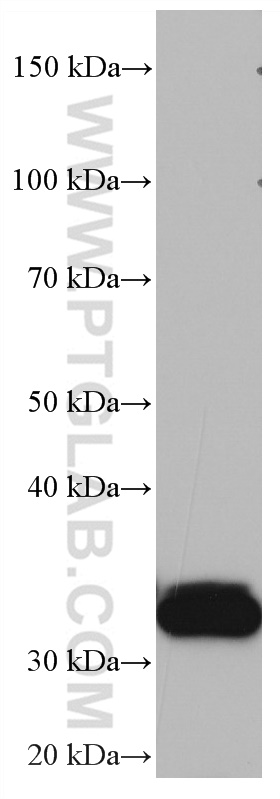验证数据展示
产品信息
66938-1-PBS targets ZFP36 in WB, IHC, Indirect ELISA applications and shows reactivity with human, mouse, pig samples.
| 经测试应用 | WB, IHC, Indirect ELISA Application Description |
| 经测试反应性 | human, mouse, pig |
| 免疫原 |
CatNo: Ag28473 Product name: Recombinant human ZFP36 protein Source: e coli.-derived, PET28a Tag: 6*His Domain: 1-326 aa of BC009693 Sequence: MDLTAIYESLLSLSPDVPVPSDHGGTESSPGWGSSGPWSLSPSDSSPSGVTSRLPGRSTSLVEGRSCGWVPPPPGFAPLAPRLGPELSPSPTSPTATSTTPSRYKTELCRTFSESGRCRYGAKCQFAHGLGELRQANRHPKYKTELCHKFYLQGRCPYGSRCHFIHNPSEDLAAPGHPPVLRQSISFSGLPSGRRTSPPPPGLAGPSLSSSSFSPSSSPPPPGDLPLSPSAFSAAPGTPLARRDPTPVCCPSCRRATPISVWGPLGGLVRTPSVQSLGSDPDEYASSGSSLGGSDSPVFEAGVFAPPQPVAAPRRLPIFNRISVSE 种属同源性预测 |
| 宿主/亚型 | Mouse / IgG2a |
| 抗体类别 | Monoclonal |
| 产品类型 | Antibody |
| 全称 | zinc finger protein 36, C3H type, homolog (mouse) |
| 别名 | TTP, Zfp 36, Tristetraprolin, mRNA decay activator protein ZFP36, Growth factor-inducible nuclear protein NUP475 |
| 计算分子量 | 326 aa, 34 kDa |
| 观测分子量 | 34 kDa |
| GenBank蛋白编号 | BC009693 |
| 基因名称 | ZFP36 |
| Gene ID (NCBI) | 7538 |
| RRID | AB_2882262 |
| 偶联类型 | Unconjugated |
| 形式 | Liquid |
| 纯化方式 | Protein A purification |
| UNIPROT ID | P26651 |
| 储存缓冲液 | PBS only, pH 7.3. |
| 储存条件 | Store at -80°C. The product is shipped with ice packs. Upon receipt, store it immediately at -80°C |
背景介绍
The expression of many cytokines is regulated post-transcriptionally by factors that modulate mRNA transport, translation, and stability. Much of this regulation occurs by the binding and stabilizing, or destabilizing, of cytokine mRNAs by proteins that recognize adenosine and uridine-rich elements (AREs) in untranslated regions of target transcripts. Zfp36 is a mRNA-binding protein involved in post-transcriptional regulation of AU-rich element (ARE)-containing mRNAs. It was demonstrated to physically interact with the p65 subunit of nuclear factor-κB leading to decreased nuclear import and diminished transcriptional activation mediated by nuclear factor-κB. It acted by specifically binding ARE-containing mRNAs and promoting their degradation, and has a crucial role in the post-transcriptional regulation of tumor necrosis factor (TNF).

